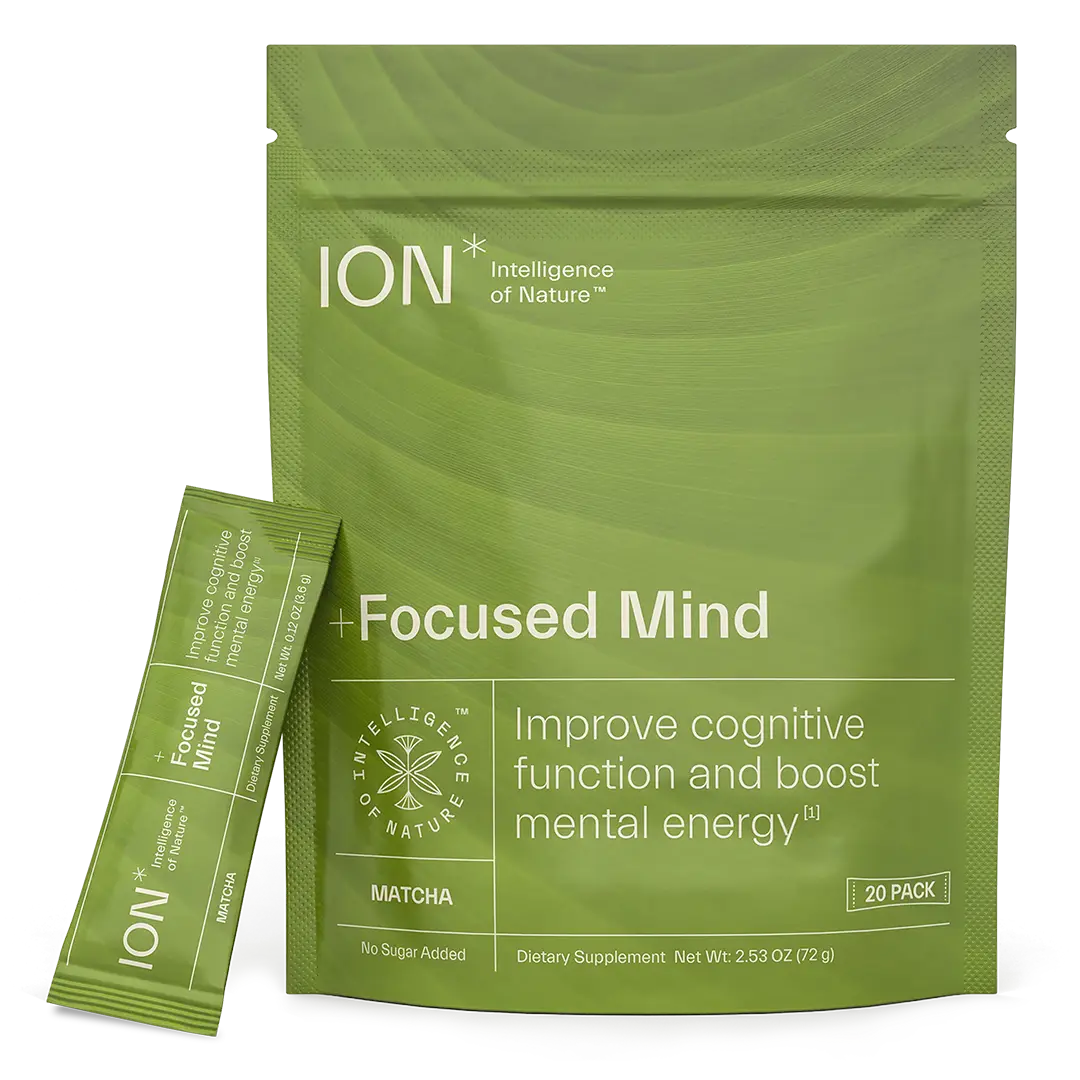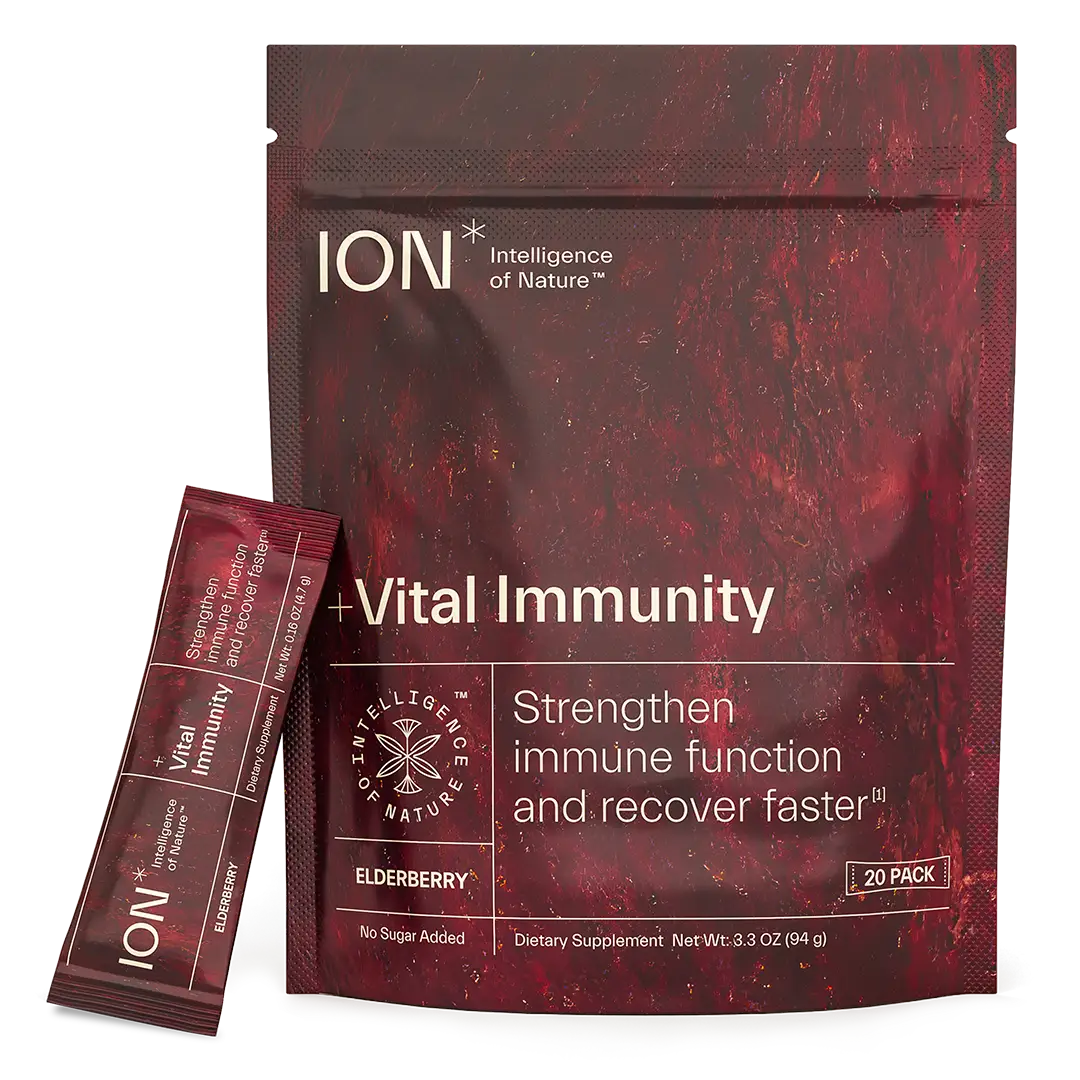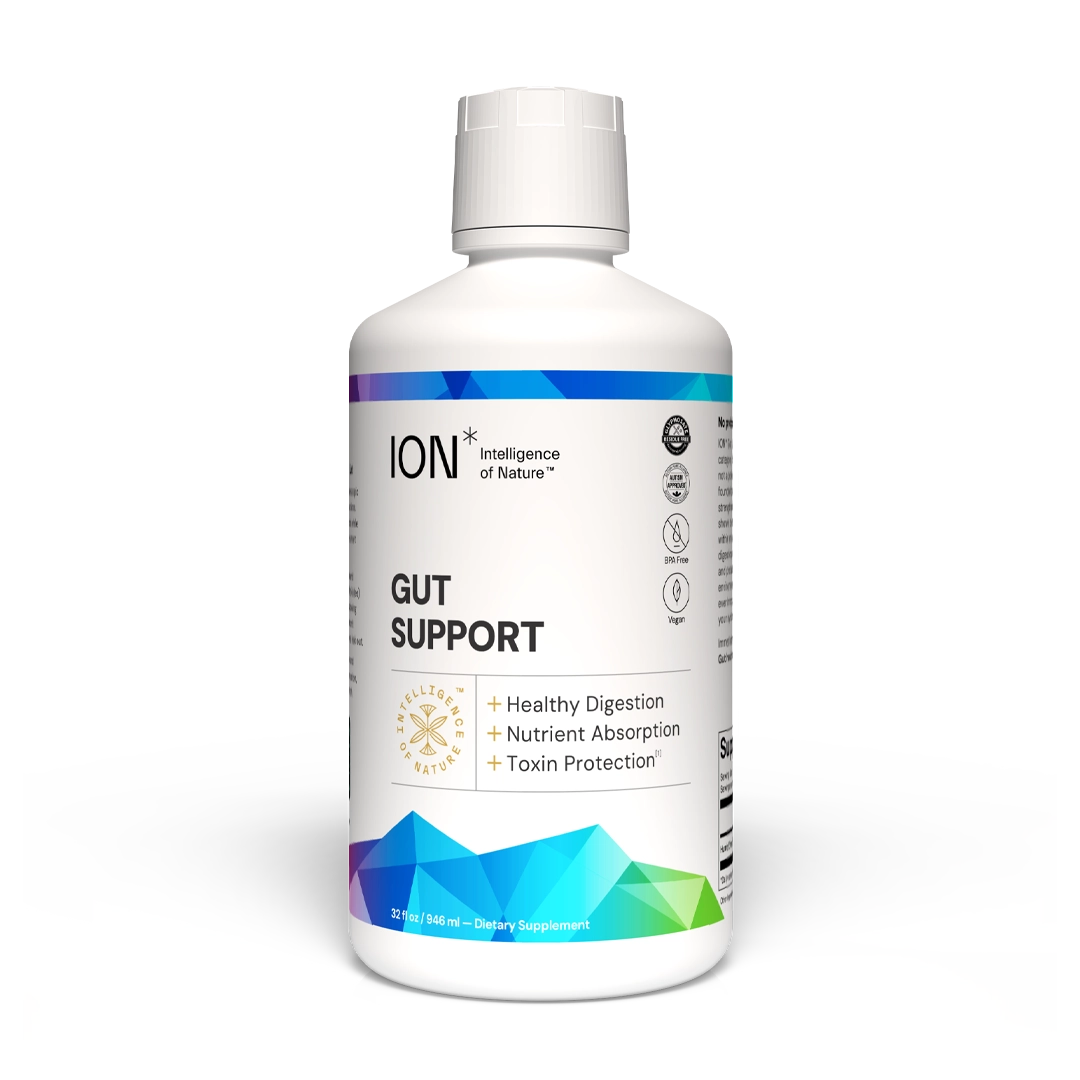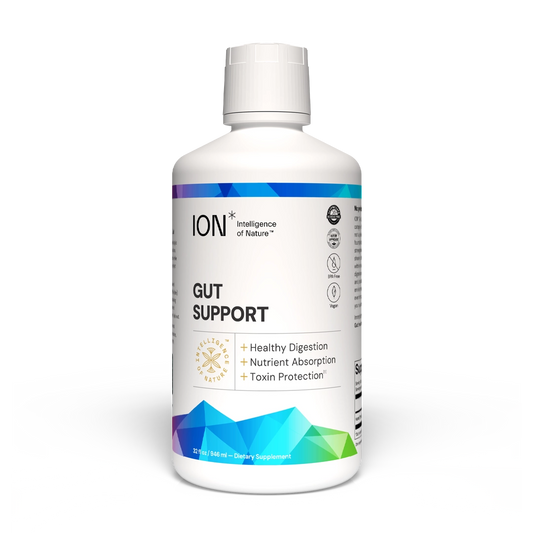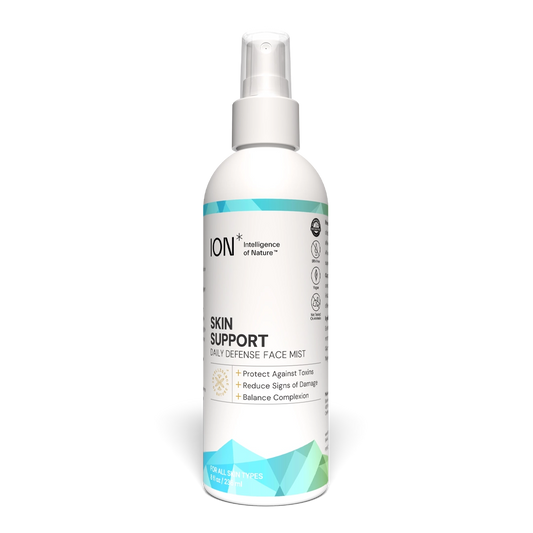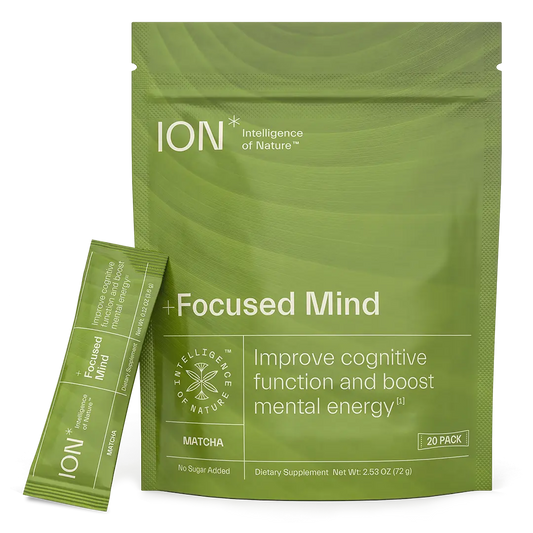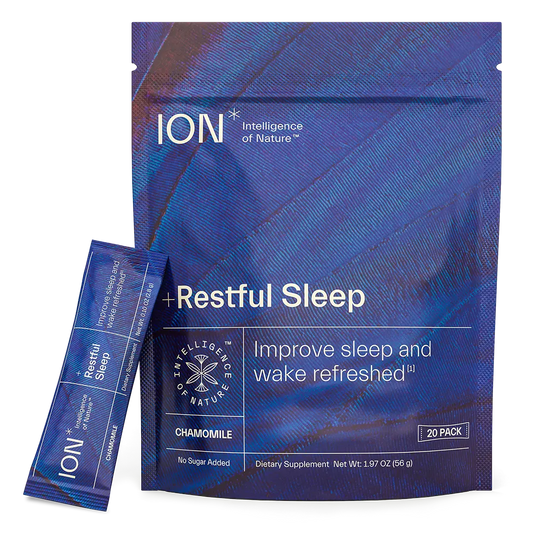Do you start your day with a cup of Joe? While water is the most frequently consumed beverage in the country, according to a report from fall 2023, more Americans drink coffee each day (63%) than any other beverage, says the latest “Atlas of American Coffee.” (1) Our culture celebrates the boost in energy and focus java provides, and the rich sensory experience of savoring a latte in a hip cafe or over conversation with friends. Considering the tens of thousands of coffee shops in the US, there is no doubt America is a coffee-loving nation.
The health benefits of drinking coffee
In terms of its health benefits, research has linked moderate coffee consumption to potentially decreasing the risk of chronic diseases such as metabolic syndrome (2), obesity (3), type 2 diabetes (4), cardiovascular diseases, and some types of cancer (5), including colorectal cancer (6). Generally speaking, coffee has a myriad of benefits, perhaps due to its antioxidant and anti-inflammatory properties (7).
Of particular interest, studies have shown coffee may benefit the gut microbiome, the trillions of bacteria, fungi, parasites, and viruses that live in our digestive tract and are intimately connected to our overall physical and mental health. For example, a 2020 study noted, “regular consumption of coffee appears to be associated with changes in some intestinal microbiota groups in which dietary (poly)phenol and caffeine may play a role.” (8). Another study from the American College of Gastroenterology noted, “Higher caffeine consumption was associated with increased richness and evenness of the mucosa-associated gut microbiota, and higher relative abundance of anti-inflammatory bacteria…” (9). As we know, decreasing inflammation is important for gut health, and research has demonstrated coffee may have an anti-inflammatory effect (10). Plus, since coffee is a stimulant, it can certainly get the gut “moving”. . . perhaps in the right direction. Moreover, compounds in coffee, such as polyphenols, have been shown to have a prebiotic effect, which means they help feed and nourish existing beneficial gut bacteria.
So, is coffee a key contributor to good gut health?
Well, maybe, but there are potential issues to keep in mind when navigating your coffee consumption journey. High caffeine intake (above 400 mg daily) may disrupt overall gut bacteria composition, potentially impacting gut health negatively (11). High-dose caffeine can also exhibit antimicrobial properties, which could possibly harm some beneficial gut bacteria (12). And finally, for those with sensitive stomachs, caffeine can worsen symptoms like bloating, diarrhea, and heartburn. Caffeine consumption is generally considered safe, yet we must note there are possible side effects.
While coffee lovers rejoice in the potential benefits, it’s important to remember that coffee doesn’t work for everyone, and not all coffee is created equal. The quality of coffee beans is paramount to receiving the health benefits. For this recipe, we teamed up with our health-minded friends at Purity Coffee to create a delicious Zesty Ginger Coffee Whip that will add a gut-healthy zing to your morning routine. And Purity Coffee isn’t just any ol’ coffee company: their team is on a mission to improve the world’s health through coffee. After passing rigorous third-party testing for mold, mycotoxins, and contaminants, their regeneratively farmed, organic, specialty-grade coffee beans undergo a customized roasting process that optimizes the levels of antioxidants, bioactive compounds, and micronutrients contained in the coffee. You can taste and feel the difference in these consciously crafted beans.
Gut-Healthy Coffee Whip Ingredients
Here’s a quick overview of our Zesty Ginger Coffee Whip’s ingredients to further edify your sipping experience:
Purity Coffee EASE: Purity offers a unique roast called EASE, their most balanced, darker roasted coffee with a full-bodied flavor. It is high in antioxidants, lower in acidity, and includes prebiotic benefits from polyphenols that are ideal for supporting the health and balance of your gut microbiome. Gut-healthy coffee beans for the win!
Ginger: Ginger is the rhizome (meaning a subterranean plant stem that sends out roots and shoots from its nodes) of Zingiber officinale, and a spice used and celebrated worldwide for its medicinal properties and flavor profile for thousands of years. In terms of gut health, ginger has been shown to impact the diversity of our microbiota, (13) increase gastrointestinal motility (14), accelerate gastric emptying in those with and without dyspepsia (aka indigestion) (15), decreasing nausea (16), and may even help with IBS (17), and gastroenteritis (18).
Coconut Milk: Coconuts belong to the palm family and grow abundantly throughout Malaysia, Polynesia, and southern Asia. Coconut milk is not naturally occurring on its own, and is made by mixing the coconut flesh with water. Coconut milk is loaded with nourishing healthy fats and is dairy and lactose-free, decreasing any indigestion that may be caused from drinking cow’s milk. One study on rats found coconut milk decreased the size of a stomach ulcer by the same amount as an anti-ulcer drug (19)! Further, coconut milk contains lauric acid, which may modulate intestinal health due to its antimicrobial properties (20), and can be considered on a low FODMAP diet (21).
Honey: Raw honey has a long history of medicinal use for digestive challenges. It is not only delicious, but has incredible benefits to support a healthy gut microbiome. Honey has nutritional and therapeutic benefits, including antimicrobial, antioxidant, and anti-inflammatory properties. There is also increasing research suggesting that certain types of honey have prebiotic activity, which promotes specific, favorable changes in the diversity and function of your gut microbiota. Current research also notes that certain kinds of honey can reduce infection-causing bacteria in the gut like Salmonella, E. coli, and C.diff, while at the same time stimulating the growth of potentially helpful species, such as Lactobacillus and Bifidobacteria.(22)
Cinnamon: A globally used and celebrated spice from the bark of various species of cinnamon trees, cinnamon acts as an antioxidant, anti-inflammatory, antidiabetic, antimicrobial, anticancer, lipid-lowering, and cardiovascular-disease-lowering compound (23). Cinnamon has also been reported to support cognitive function (24), may improve intestinal flora balance (25), and offers a delicious, warming flavor profile to the drink.
Sea Salt: Minimally processed, unrefined sea salt offers trace minerals and is a great source of electrolytes like magnesium, potassium, and calcium. Contrary to popular belief, quality sea salt can actually help your body balance fluids and retain hydration. Plus, salt brings out the flavor in any recipe and adds that “salty-sweet” complexity to this coffee drink.
Bonus points: add a dose of ION* Gut Support to your coffee! ION* is a science-backed, all-natural daily wellness supplement that diversifies your microbiome, supports healthy digestion, defends from toxins, and improves nutrient absorption. Most relevant for adding to recipes, ION* uniquely acts as a carrier molecule. That means that ION* has the ability to bind to precious nutrients in foods and beverages to help deliver these nutrients to your cells, optimizing their function, supporting energy, and improving your overall health. Tasteless and in liquid form, it couldn’t be easier to add ION* to other liquids to boost the absorption of nutrients and get more “bang for your buck” from anything you consume. ION* is the perfect enhancement to our Zesty Ginger Coffee drink to help get these nourishing prebiotics and antioxidants into your cells to do their best work.
How to Make a Gut-Healthy Coffee Whip
Zesty Ginger Coffee Whip
Ingredients: Serves 2
2 cups prepared Purity Coffee EASE (hot or cold)
1/2 - 1-inch knob of fresh ginger, grated or minced
1 cup full-fat coconut milk
2 Tbsp raw honey
1/2 Tsp cinnamon
1/4 Tsp sea salt
Method:
- Place all ingredients in a high-speed blender and mix until frothy. Taste and adjust as desired.
- Serve hot or over ice.
- Squirt in a dose of ION* for easy consumption.
- Enjoy!
About Purity Coffee
Purity Coffee is dedicated to enhancing global health through coffee. Our core mission is to deliver a coffee that not only tastes great, but also offers significant health benefits. We have created specific roast profiles designed to maximize antioxidants, avoid acrylamide, and minimize levels of PAH, and we consistently perform third-party lab testing to ensure our coffee is free of pesticides, mold, and mycotoxins. Our commitment to excellence is matched by our dedication to the planet. We're proud to be USDA Organic, Specialty Grade, Rainforest Alliance Certified, and Smithsonian Bird Friendly®. Plus, our support for regenerative farming practices underlines our promise of a sustainable, eco-friendly coffee experience.
Sources
- https://www.ncausa.org/Newsroom/Celebrate-National-Coffee-Day-with-latest-data-on-Americas-favorite-beverage
- https://www.ncbi.nlm.nih.gov/pmc/articles/PMC10044807/
- https://www.ncbi.nlm.nih.gov/pmc/articles/PMC6628169/
- https://pubmed.ncbi.nlm.nih.gov/14706966/
- https://www.ncbi.nlm.nih.gov/pmc/articles/PMC5696634/
- https://www.ncbi.nlm.nih.gov/pmc/articles/PMC4874555/
- https://pubmed.ncbi.nlm.nih.gov/28826374/
- https://www.ncbi.nlm.nih.gov/pmc/articles/PMC7282261/
- https://gi.org/media/press-info-scientific-meeting/featured-science/p1916-caffeine-consumption-and-the-colonic-mucosa-associated-gut-microbiota/
- https://pubmed.ncbi.nlm.nih.gov/33383958/
- https://typeset.io/papers/the-association-between-caffeine-intake-and-the-colonic-30nmzsj7
- https://typeset.io/papers/nutrients-mediate-caffeine-inhibition-of-escherichia-coli-17kaqmdj
- https://www.ncbi.nlm.nih.gov/pmc/articles/PMC7940200/
- https://pubmed.ncbi.nlm.nih.gov/10442508/
- https://pubmed.ncbi.nlm.nih.gov/18403946/
- https://pubmed.ncbi.nlm.nih.gov/25414888/
- https://pubmed.ncbi.nlm.nih.gov/24559811/
- https://pubmed.ncbi.nlm.nih.gov/22784345/
- https://pubmed.ncbi.nlm.nih.gov/18521965/
- https://www.ncbi.nlm.nih.gov/pmc/articles/PMC6923562/
- https://pubmed.ncbi.nlm.nih.gov/29473657/
- https://www.ncbi.nlm.nih.gov/pmc/articles/PMC9367972/
- https://www.ncbi.nlm.nih.gov/pmc/articles/PMC4003790/
- https://www.tandfonline.com/doi/full/10.1080/1028415X.2023.2166436
- https://pubmed.ncbi.nlm.nih.gov/31595527/
